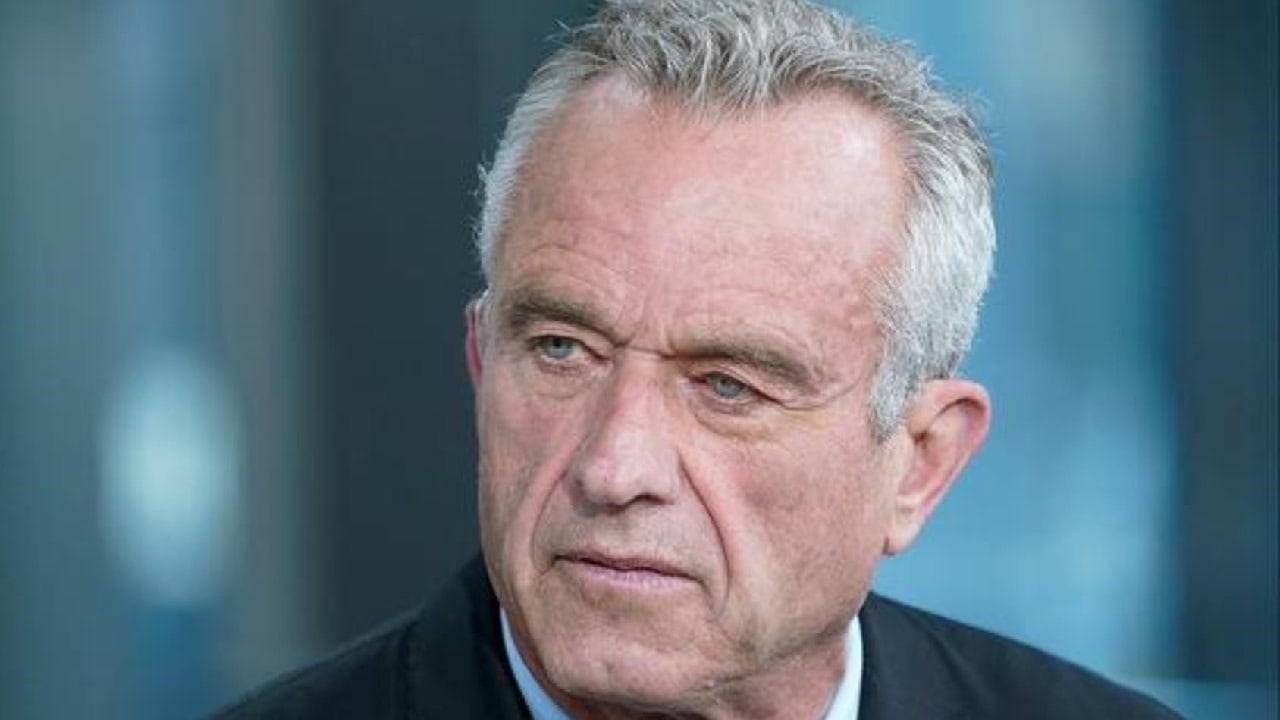Robert F. Kennedy, Jr. declared his run for president as an independent candidate earlier yesterday in Philadelphia, PA, the touted birthplace of the nation. Kennedy made nods to the symbolic site as he often referenced the original intent of the Founding Fathers for a pluralistic society to live in harmony despite differing points of view.
Kennedy described a nation – and government – that has diverged radically from what those men envisioned and claimed most people agree that the United States has indeed, “lost its way.”
Recent polling supports his assertion. A Rassmussen poll out today suggests 66 percent of voters believe the country is “on the wrong track.”
Kennedy expressed his pain over leaving the party that his family had been so loyal to for decades.
However, the newly independent presidential hopeful said his sacrifice is nothing compared to the risk that those who dared to rebel against the crown took to declare our nation’s freedom and independence.
He urged cheering participants to join him for “history-making change” and stated that voters are “ready to reclaim their freedom and independence.”
“I am here to declare myself an independent candidate …” Kennedy proclaimed.
The crowd went wild with shouts of “USA” and “Bobby” before Kennedy could finish his sentence.
“I’m here to join you in making a new Declaration of Independence for our entire nation.”
RFK, Jr. declared voters are seeking independence from the corporations and Wall Street that he says “have hijacked our government.” He targeted big tech, big pharma, and big agriculture, along with military contractors, their lobbyists, and “the mercenary media that is here to fortify all of the corporate orthodoxies from their advertisers and to urge us to hate our neighbors and to fear our friends.”
And last but not least, amidst shouts of support, Kennedy declared independence from “the two political parties and the corrupt interests that dominate them and the entire rigged system of rancor, of rage, of corruption, of lies that has turned government officials into indentured servants for their corporate bosses.”
Kennedy’s Populism Promises to End Polarization
Kennedy is leading a growing populist movement that believes the divisions in our country are purposely orchestrated by what he called “cynical elites.”
At times he seemed to be echoing the cries of Trump enthusiasts, talking about the “rigged system.”
Indeed, many are saying that Kennedy would be a greater threat to Trump’s campaign than it would to Biden’s.
Yet unlike Trump, Kennedy refuses to pit one side against the other. (Although in a slip, he did say the word “Democrat” when he meant “demagogue.”)
That kind of polarization, the environmental advocate turned politician said, is the very thing that makes it easy for corrupt power to control the population.
According to Kennedy, people want an end to the name-calling, vitriol, and hatred. He promised to be the leader to ignite a reunion, stating that more citizens than not agree on many ideas. Ideas such as that the country should take care of veterans and seek peace instead of war; that teachers should receive a decent salary, that healthcare should be affordable, that corporations should pay their fair share in taxes, and that the environment should be protected for future generations to enjoy.
However, he didn’t address some of the most contentious issues of the upcoming election, such as how to address foreign conflicts that are escalating across the globe or offer solutions about the economy, the top concern for most voters right now.
Kennedy’s address was more of a stirring emotional plea than a nuts-and-bolts policy offering, which will hopefully come later.
The Next George Washington?
Appealing to voters’ “greater angels”, “Bobby” drummed up Americans’ inherent pride and patriotism without inciting the vitriol and arrogance that sometimes accompanies it.
He promised to be “a servant to my conscience, my Creator, and to you.”
To illustrate this point, Kennedy spoke three words that rarely, if ever, come out of politicians’ mouths. He said, “I was wrong” when discussing the border crisis, outlining how he had changed his mind after listening to border patrol agents, law enforcement, and others whose attitudes differed from his own.
He vowed to listen to all stakeholders in every issue, hold his own opinions lightly, and choose “not the easy path, not the established path, but the right path.”
Kennedy claimed, that because of this, he is attracting supporters on both sides of some of the most contentious issues in the country right now – abortion, vaccinations, and climate.
In a bold statement, Kennedy claimed he would model himself after the only other president who was not a member of either political party: George Washington.
Those are mighty shoes to fill. It would be a miracle, and indeed a blessing, if he can actually step into them, much less fill them.
Jennifer Galardi is the politics and culture editor and opinion writer for 19FortyFive.com. She has a Master’s in Public Policy from Pepperdine University and produces and hosts the podcast Connection with conversations that address health, culture, politics, and policy. In a previous life, she wrote for publications in the health, fitness, and nutrition space. In addition, her pieces have been published in the Epoch Times and Pepperdine Policy Review. You can follow her on Instagram and Twitter.

